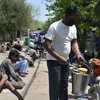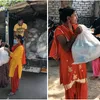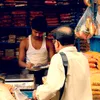From food kits to relief teams, this organisation is serving the vulnerable in times of coronavirus
Delhi-based NGO SEEDS has come forward with plans of action to provide relief to the needy in seven states during the coronavirus pandemic
India has been under lockdown for well over a month. However, despite the aim of the lockdown being to control the spread of coronavirus, the number of coronavirus positive cases is on the rise.
The increase in number of cases has left the whole country battling a shortage of medical resources. From health workers and protective personal equipment to isolation wards, the dearth in necessary facilities and services is there for all to see.
Among many individuals and organisations that have come forward to help fight the crisis is SEEDS (Sustainable Environment and Ecological Development Society). Founded in 1994, SEEDS builds community resilience through practical solutions for disaster readiness, response and rehabilitation, and empowerment of the most vulnerable for a better future.
Dr Manu Gupta, Co-founder of SEEDS, tells SocialStory,
“We felt that while there is a lot of knowledge available, lack of outreach leads to loss of lives especially of the poor and vulnerable. Hence, bridging the gap between knowledge and outreach became a mission statement for us and the organisation.”
Dr Manu has spent 26 years in the sector gaining experience in covering national and regional advocacy, mobilisation of community-led efforts in recovery and risk reduction, climate change adaptation and emerging issues such as humanitarian partnerships and accountability. Among many accolades, he holds degrees in physical planning and urban planning, and a doctorate in community-based disaster management.
The blueprint
When the nationwide lockdown was imposed, SEEDS planned to reach out to 100,000 underprivileged and vulnerable communities in seven states — Kerala, Maharashtra, Odisha, Bihar, Delhi, Uttarakhand, and Karnataka.
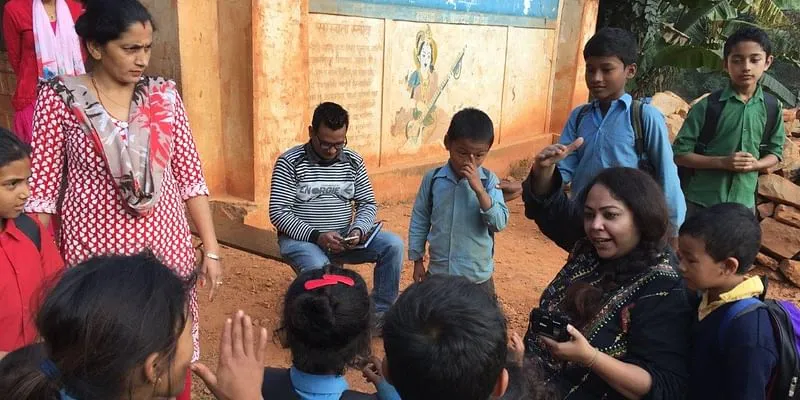
Team SEEDS on ground
“The primary concern at SEEDS is to mitigate the impact on the poorest and most vulnerable. In our work, we focus on the bottom one percent of society in terms of vulnerability as the long-term consequences of COVID-19 will be far-reaching and particularly extreme for this group, both in terms of the direct impact of the disease as well as the economic impact of the lockdowns,” said Dr Manu.
SEEDS is working with the respective state governments to respond to the physical and mental health of people due to the economic impact of the pandemic. With an aim to reach out to the elderly, children, daily-wage earners, and frontline workers, SEEDS has divided its COVID-19 Response Action Plan into two parts.
“With every disaster, we learned new things and came much closer to the vision of disaster resilient communities. Over the last 26 years, we have extensively worked on every major disaster in the Indian sub-continent, grafting innovative technologies and traditional wisdom,” he added.
The implementation
Local response teams have been deployed in seven hotspots across the country. Each team is engaging with the local administration and civil society organisations to identify those who are most vulnerable to the pandemic. The local administrations have issued special passes for the SEEDS teams.
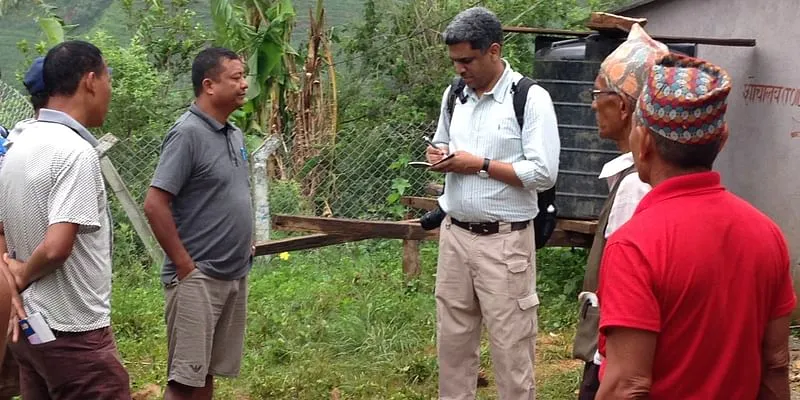
Trying to understand the needs of vulnerable communities
Work has been initiated both centrally and on field locations for procurement of material for relief assistance, ensuring movement of goods and volunteers, and permission from district authorities. All the staff deployed on the field have undertaken special safety training and necessary precautions.
“SEEDS has been reaching out and supporting children in orphanages, daily wage earners, transgender communities, women-led households, tribal families, slum dwellers, socially marginalised groups, and commercial sex workers who are impacted by coronavirus,” says Dr Manu.
State-wise impact
In Bihar, SEEDS team is helping develop intervention strategies at block level in Saharsa. Data is being collected on the returning migrant workers who are in need of ration and monetary aid.
In Delhi, the team is working with a local citizen forum, a federation of resident welfare associations and market trader associations, Purvi Dilli Apda Prahari, in identifying the needs of the deserving people. The team has identified Gandhinagar, Delhi, as a major hub for daily-wage labourers who are currently unemployed. Other locations are still being identified. Cooked food is being provided to labourers.
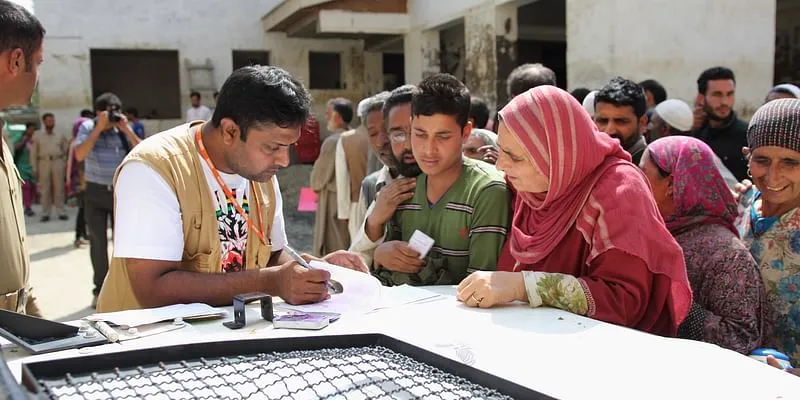
Ensuring support from authorities
In Odisha, a team of volunteers is working in the slums of Puri to spread awareness.
In Uttarakhand and Kerala, SEEDS is working alongside the district administrations to assess needs for providing preventive care to vulnerable sections of the population. Especially in Uttarakhand, majority of the labourers are from outside the state and do not have any ration cards.
In Kerala, relief assistance commenced on March 22, with distribution of hygiene kits. In other places, requirements are being constantly assessed. Unconditional cash transfer to families in Delhi, Odisha, and Uttarakhand is being worked out.
“In our constant endeavour to serve humanity, we firmly believe that it is important to have a strong recovery and rehabilitation programme to restore what is lost during a disaster and work towards building resilient communities,” says Dr Manu.
Edited by Javed Gaihlot


